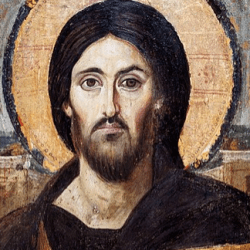It has been my contention for some time that the so-called “Escondido theology” is not reflective of two-kingdom theology generally. One of the areas in particular which, in my view, differentiates the approach of VanDrunen, Horton, et. al. from a Lutheran perspective is in regards to the continuing validity of the cultural mandate of Gen. 1:28.
“Be fruitful and multiply and fill the earth and subdue it, and have dominion over the fish of the sea and over the birds of the heavens and over every living thing that moves on the earth.”
VanDrunen contends that the cultural mandate was given as a condition through which Adam would inherit eternal life for himself and his offspring. This activity of Adam was temporal, only given by God in preparation for the Sabbath rest in which he would partake through his obedience. He purports that because Christ is the last Adam, such a cultural mandate is no longer a necessity for those who are in Christ. He argues: “To understand our own cultural work as picking up and finishing Adam’s original task is, however unwittingly, to compromise the sufficiency of Christ’s work” (Living in God’s Two Kingdoms, 50). To be clear, VanDrunen emphasizes the importance of the Christian’s vocation in the secular realm, but views it as only temporary, and he disconnects it from the mandate given to Adam.
What VanDrunen fails to recognize is that God created humankind to live within two particular sets of relationships: to God, and to creation. In his approach, for Adam, the cultural mandate has coram deo implications. Adam’s standing before God prior to the fall was not based on grace and faith, but instead upon his obedience in fulfilling the God-given mandate. This is, of course, based upon VanDrunen’s commitment to the Reformed concept of the covenant of works in the Garden of Eden (an idea that I have critiqued here). The problem is that the text of Genesis never makes such a connection. Nowhere in the creation account is Adam told that his standing before God could somehow be merited by obedience to this mandate. Rather, Adam’s creation was an act of grace. His relationship to God was always based on God’s action and his reception. Sure, he could lose his righteous standing before God, but he couldn’t gain it by merit.
The implications of this difference of perspective are important. If Adam’s relationship before God has always been by grace, and man’s relationship to creation has always been determined by the mandate of Genesis 1:28, then the cultural mandate is no longer simply part of the Adamic administration, but is essential to who the human creature is.
VanDrunen and other two-kingdom proponents are correct in that they argue that culture is not to be placed within the category of redemption, but providence. However, the manner in which they explain the relationship between the coram mundo and coram deo realms tends to downplay the importance and necessity of the church’s involvement in culture.












